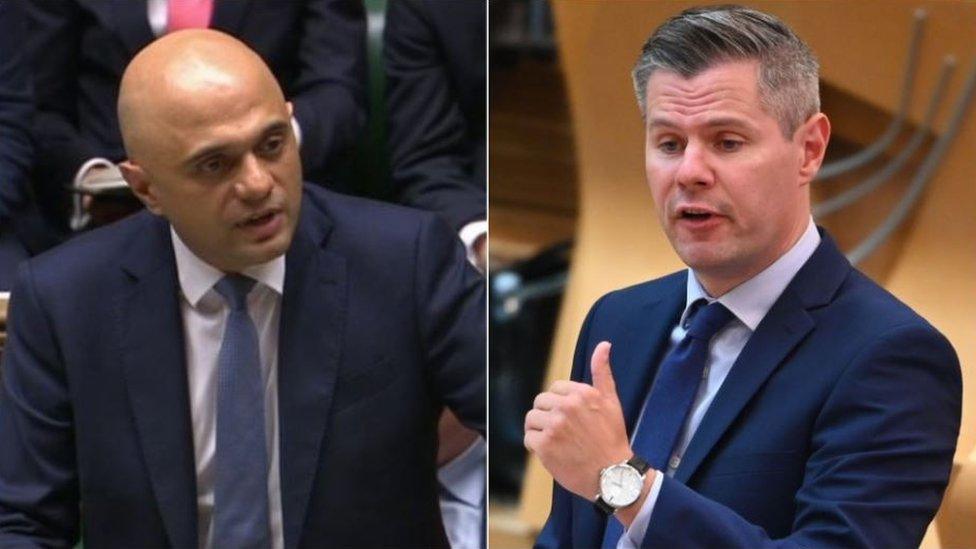Scottish budget: What do you need to know?
- Published
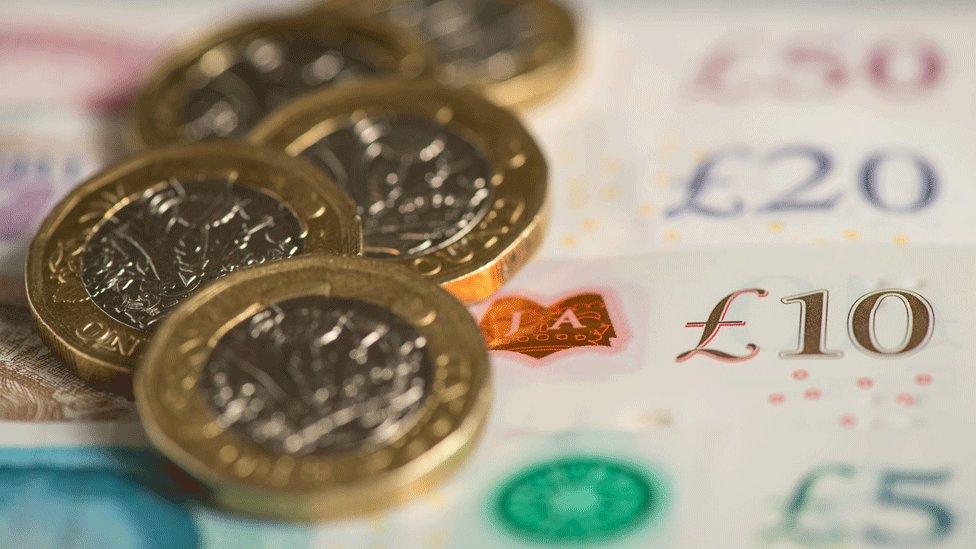
The Scottish government is to set out its budget plans for the year ahead on Thursday.
Finance Secretary Kate Forbes will detail her tax and spending proposals against the continuing backdrop of the Covid-19 pandemic, the SNP government's partnership agreement with the Greens, and a fresh set of election pledges to be delivered.
So how big is the Scottish budget, where does the money come from, and where is it likely to go?

How big is the Scottish budget?
In 2022-23, the Scottish government's core revenue block grant - the cash it will have to spend on day-to-day matters - will be £35bn.
Politicians, prone to such rows, are locked in a dispute about whether this is enough to be getting on with.
The Conservatives point out that it is about 8% more than ministers typically had to spend prior to the Covid-19 pandemic.
However, the SNP note that it is still less than there was on hand over the past two years, when extra billions were ploughed in to fund relief programmes - and given the pandemic has not gone away, nor should the funding.
This block grant - a share of the UK-wide budget as calculated via the Barnett Formula - accounts for a fair chunk of the Scottish budget, but tax revenues raised in Scotland have played an increasingly large role in recent years.
And as we saw throughout the pandemic, the measures announced now can be topped up on an ongoing basis through the year via "Barnett consequentials" - effectively Holyrood's share of cash committed to devolved areas by the UK government, which Scottish ministers can spend as they like.
Where is the money going to be spent?
Leaving the row over how much money there is aside, it is clear that there is an ever-increasing list of demands on that funding which Ms Forbes will need to manage.
The biggest wad of cash goes on health, which usually accounts for more than 40% of the overall spend. Covid has only boosted what was already a huge portfolio.
The government has already committed to increasing health spending still further, with Nicola Sturgeon promising to increase investment by 20% over the parliamentary term. A "significant down payment on that commitment" is expected on Thursday.
Social care is also set to suck up a fair chunk of the budget, even before the new National Care Service is set up. For example, the doubling of the Scottish Child Payment is forecast to cost £90m next year, and more than £300m per year when fully rolled out.
The next biggest recipient in the budget is generally local government, which takes about a quarter of the cash while delivering many core services from schools to bin collections.
There are always calls for town halls to be given more funding - or the power to raise it themselves via council tax hikes - and this debate is likely to be intensified in light of the role they played in the pandemic, and indeed local elections coming up in May.
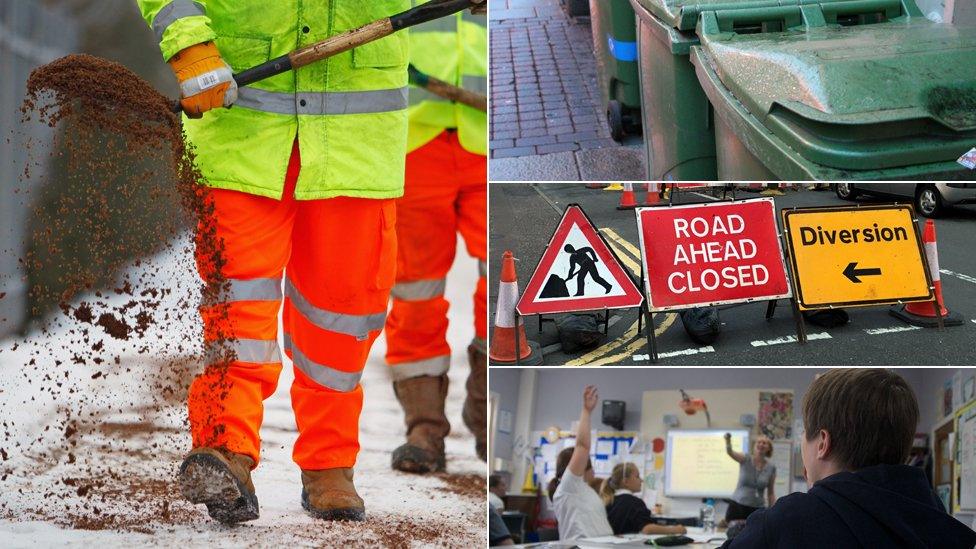
Education, transport and justice also take up hefty chunks of spending, with funding for the likes of the police usually likely to be maintained if not increased.
There will also likely be extra support for businesses, as efforts to get them back on their feet post-pandemic continue.
This has implications, however - the Fraser of Allander Institute estimates, external that the current set of rates reliefs for tourism, hospitality and leisure firms costs the government around £736m in reduced revenue. Ms Forbes faces a decision over how far and how long she should continue to fund such programmes.
And there is also sure to be a focus on environmental initiatives, with Greens in government and COP26 still large in the memory.
This will likely range across a number of portfolios, with everything from low-carbon transport to renewable energy and "just transition" funding to support jobs during the move away from oil and gas.
What about raising funds?
Since 2018, Scotland has had a separate system of income tax rates and bands to the rest of the UK.
This added two extra tax rates - one just below the basic rate, providing a break for low earners, and just one above it, to squeeze a little more from those who earn above the median wage.
Meanwhile, the higher and top rates of tax are both a percentage point higher than elsewhere in the UK, in what the finance secretary terms a "progressive" move to bolster local services.
It seems unlikely the government will make big changes again, with the SNP having pledged in May's election manifesto that it would "freeze income tax rates and bands".
Ms Forbes could potentially tinker with the thresholds - the point at which the various rates kick in. The Fraser of Allander Institute reckon that freezing thresholds, rather than raising them in line with inflation, would generate an extra £140m of revenues.
However, this would constitute a tax increase, which may not be popular at a time when National Insurance Contributions are also going up.
One thing to watch out for alongside the budget is the latest set of forecasts from the Scottish Fiscal Commission, which may provide an insight into the impact of the pandemic, the recovery of the economy and the employment market through 2022.
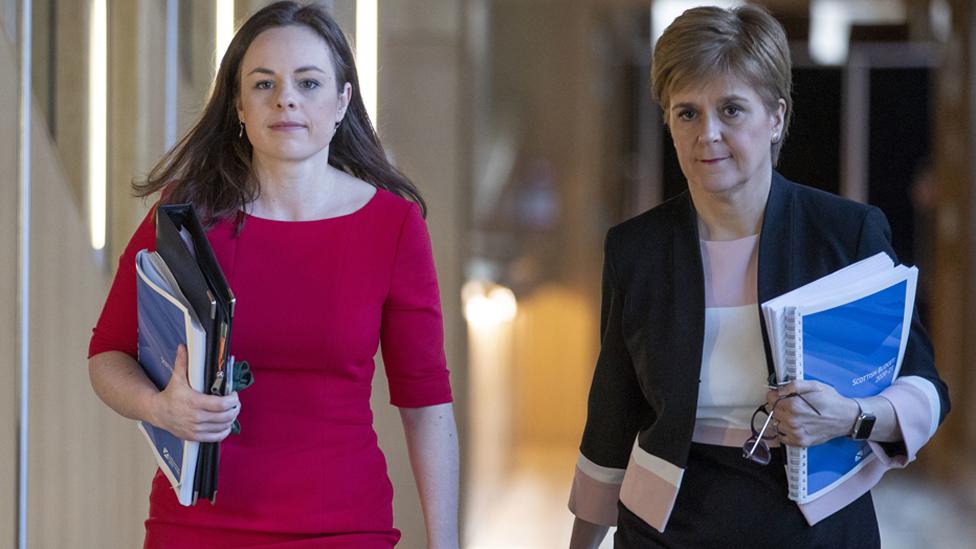
Kate Forbes won't need to negotiate with opposition parties for the next five years
Will the budget bill pass?
In previous years, this was the part of the budget that really got people excited at Holyrood - the political horse-trading where Ms Forbes would bargain with opposition parties to thrash out a budget deal.
However, with the Scottish Greens joining the SNP in government, this backroom intrigue has disappeared.
There will still be some discussion within St Andrews House about what should be in the budget, and Ms Forbes may still meet with other parties for the sake of appearances.
But with the votes of the seven Green MSPs locked in, the plans announced on Thursday will not need to be revised - and the budget bill looks set to coast through parliament with minimal fuss.
- Published13 January 2020
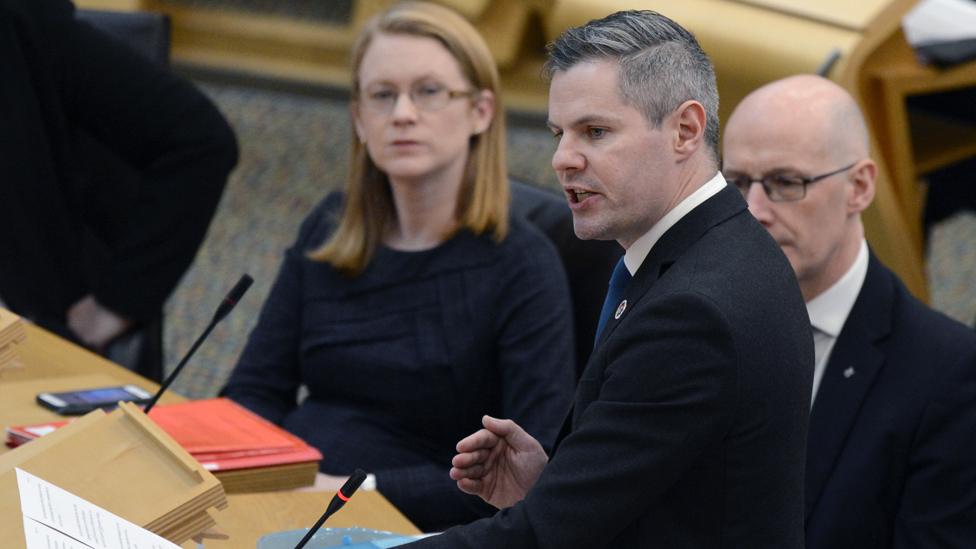
- Published7 January 2020
